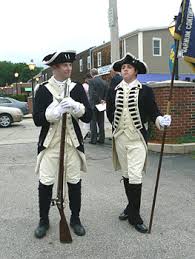|
Gamer Forge Listener Email: Name Calvin Garcia Comment In the D&D group I play with one of the players insists that when you reach a new level you have to zero your experience. However when I checked the PHB1 there is no reference to this. PHB1 uses the term Total Experience when talking about leveling up. Which is correct? Gamer Forge Response: Say, whaaaat? DCR says: No. no, & no. Your friend is either severely misinformed, or feeding you a line. Experience points (XP), is a progressive jackpot. It would take forever to gain levels if your XP total reset each time you "ding". Hence the term, "grinding". Gamer Forge Listener Email:
Name Steven Cowan Comment When in Ravenloft, would the town in question know that the Dark Lord is indeed, say, a vampire? That he or she would be the real ruler of that Domain? For example: Barovia. Strahd has been there for a long, long, very long time. How do the villagers see him? Simply an undying ruler (if a ruler at all)? For what he is, a powerful vampire? The real ruler of Barovia? His castle… simply a haunted castle that's been there since the beginning of Barovia? Or that the Castle Ravenloft is the home of the Vampire Dark Lord? I guess it could vary from DM to DM, but I have always wondered how would you explain it. Are the people in each domain in denial, would they know by now, etc.? Gamer Forge Response: We have no witty segue into this one. DCR says: 1. What's the alternative? Maybe the citizens put up with a vampire lord because the surrounding area is at least ten times worse than in the domain of the castle. You head into the surrounding countryside and you are threatened with death all day, every day. While the land around the castle is, at the very least, protected. Thus, the villagers put up with the occasional abduction/sacrifice. 2. Again, the alternative: maybe the villagers are totally okay with their undead ruler. Maybe the town sees the need to give up one of the town's virgins to ensure the safety of the rest of the population. Who knows? Maybe the vampire offers excellent health insurance and a 401k. So where does this leave the heroes? This idea might be best left for when you're ready to throw a curve ball at your players. 3. The easiest thing to take into account would be time frame. What point on the timeline will your heroes be making their appearance. If they are early in the canon, then maybe the villagers don't know for sure what rules Castle Ravenloft. Later on, you can easily justify the townsfolk knowing more about what goes on up there. Your heroes might not be the first heroes to show up... Gamer Forge Listener Email: Name School Teacher [email protected] Comment Dear Dungeon Crawlers Radio, I work with students that have a lot of difficulty performing roles that benefit the group as a whole. Their mentality is that they all want to be the winner or at least play the most important part, and so they struggle with the fact that everyone is important and plays a role in success for the group. I am asking here because my knowledge of any kind of RPG where roles are assigned and must be performed is extremely limited. Any help would be greatly appreciated. I have 10 year-olds, usually 8-10 of them. Fantasy is fine, but probably need to stay away from demons and black magic. My initial thought that started this was an economy type rpg. What I'm really looking for is a game where the students are required to perform a role that differs from everyone else's, and if they don't perform it well (as in trying to do someone elses "job") they fail as a group. Thank you, Gamer Forge Response: Hmmmmm....DCR says: 1. Try splitting the class into groups of no more than four, then give each group a choice of character to which the group decides actions. Then, the whole class becomes a controlling interest in the party, and every important decision is made by the class and success/failure rests on the students. Pre-generated characters will most likely serve you best, but at least consider letting the groups generate a character. That way they make more decisions regarding the outcome. No, seriously. Use the link above. It's free and saves you a bunch of time. 2. This isn't tee-ball! If you enter with the mentality that failure cannot happen, for whatever reason, then you are depriving your student of the most important life lessons. Namely, coping with failure. Ideally, the students will succeed and the adventure continues. We say, make a big deal about the big decisions, and if the "character" doesn't quite succeed, make it light hearted, move on quickly, and bring the focus back to the story, not on the failure. Trust us, the students will feel it, and internalize those feelings. But they must learn to cope with the failure, not just success. 3. Don't get too mundane. Its a good opportunity to incorporate lessons on economy and the barter system. Just remember not to let mundane events become the focal point of the game. *Bonus XP: If you need a more educational reference about antagonists and how they rule, remember that during the American Revolution (you know, the one that made the United States of America), good people still supported England, even though they colonists hated being taxed like they were. Not necessarily out of loyalty, but because England was still trying to take care of it's colonies. Sure, it wasn't exactly a bang-up job, but what do you expect from an Empire that was growing too large to manage.
0 Comments
|
The GamerForge is DungeonCrawlersRadio’s most favoritist segment of the entire show. Have you ever had a boggling rules question that no one in the group can figure out? Write in to us and we’ll help try to solve it! Are you a Game/Dungeon Master who needs help squashing animosity at the table or dissension in the ranks? Perhaps we can help!
If you are in need of help, encouragement, or an uber devious way to get a TPK, we are here to help. No matter your needs, we’ll help you get more from your gaming! The Gamer ForgeWhere Players & Game Masters can come for valuable information to level up your game! Archives
August 2013
Categories
All
|


 RSS Feed
RSS Feed








